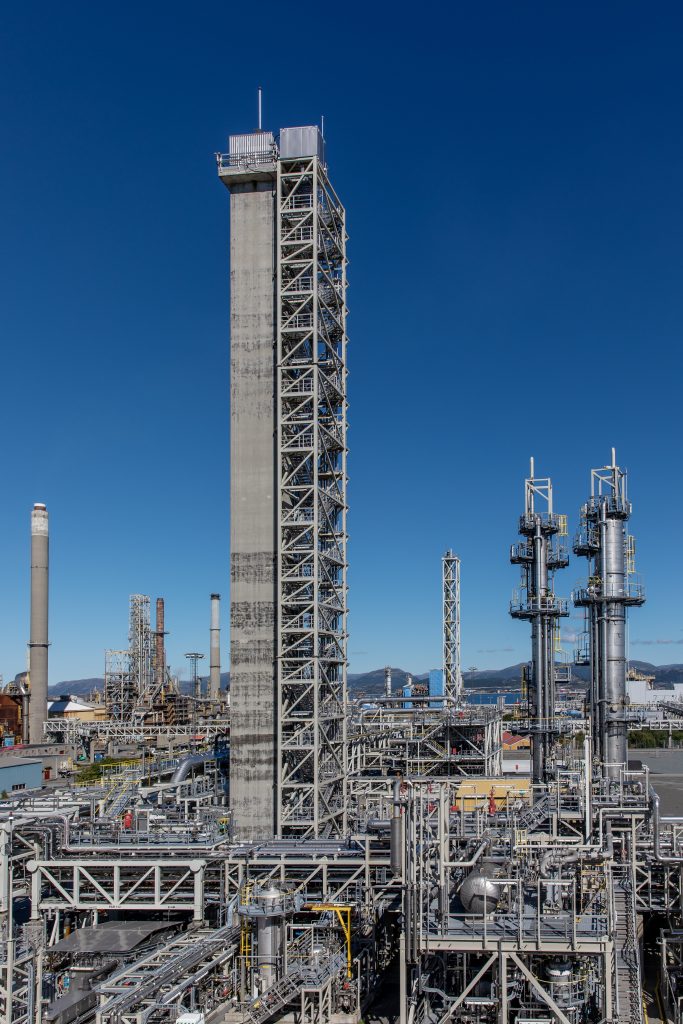23.09.2020
TCM conducts testing of new technology for carbon capture
At Technology Center Mongstad (TCM), testing of new technology for carbon capture is now being carried out. Here, a research-based capture solvent, CESAR 1, is used with the aim of capturing CO2 at the lowest possible cost.

– The advantage of testing at our facility is that you get to test relatively mature capture technologies under almost the same physical conditions as with CO2 capture at full scale, says head of Technical Support at TCM, Muhammad Ismail Shah. – We are excited about the results of the testing, which is expected to be available by the end of the first quarter next year.
It is the owners of TCM, Gassnova (on behalf of the Norwegian state) and the industrial partners Shell, Total and Equinor, who together have initiated the implementation of the test with CESAR 1.
The reason is that the International Energy Agency, through its Greenhouse Gas R & D Program (IEAGHG), has requested a comprehensive assessment of new technologies for CO2 capture in the energy sector, and an evaluation of their potential to reduce costs associated with the operation of full-scale facilities.
– Fossil fuel-based energy producers need to reduce their climate emissions, and new capture technologies can help them along the way if these technologies are sufficiently cast-effective, Shah says.
TCM has previously conducted several tests of technologies with the carbon capture solvent MEA (Mono Ethanol Amine) and has managed to capture up to 98 percent of CO2 emissions with aqueous MEA (a mixture of water and MEA). IEAGHG has proposed a capture liquid with a different open and available chemical content (PZ + AMP) as a reference in connection with testing of new technologies. With this catch liquid, a reduction in catch costs of 22 percent for coal-fired and 15 percent for gas-fired power plants has been achieved in experiments, compared with ordinary MEA catch liquid.
– The capture liquid now being tested, CESAR 1, consists of a mixture of the mentioned AMP and piperrazine, which is another liquid used in connection with the capture of CO2. We believe the CESAR 1 mixture has the potential to further reduce capture costs.
The testing with CESAR 1 is carried out with CO2-containg flue gases from the refinery at Mongstad, and will also demonstrate the performance and stability of this solvent over time, and provide answers to important health, safety and environmental aspects when using this technology. It is also an ambition to promote innovation in the field of carbon capture by relating the use of technology with this capture solvent to key economic terms for carbon capture and storage. One of the aims is to establish experiments with CESAR 1 as a reference when comparing with other technologies, and contribute to more innovation and creativity in the development of technologies for carbon capture.
